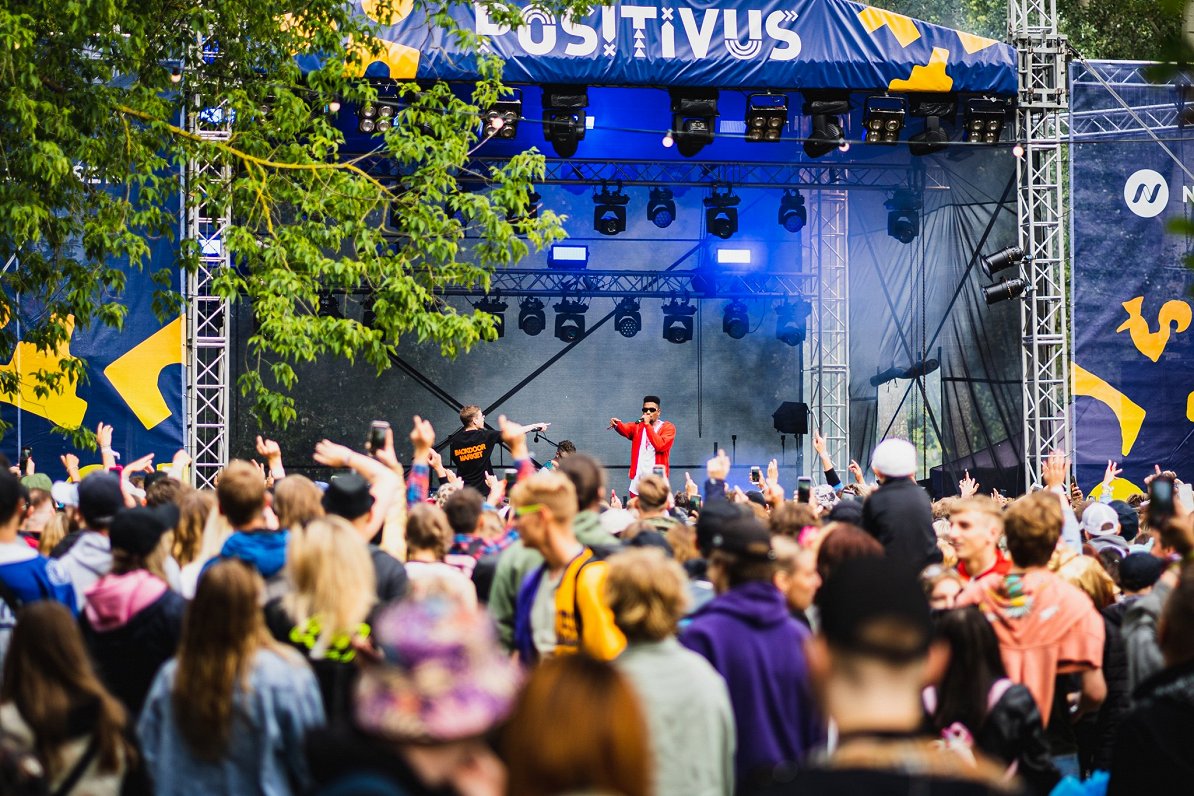IN SHORT:
- The song festival is not advertised as a tourism product, the priority is the local audience.
- The number of tourists from neighboring countries – Lithuania and Estonia – has increased.
- Foreign tourists make up 29% of the opera house’s audience.
- Foreigners make up about a third of “Positivus” guests.
- The LIAA program helps event organizers finance international marketing campaigns.
- Both major cultural and sports events contribute to the recognition of Riga and Latvia.
The priority of the song festival is the local audience
Three months later, at the Song and Dance Festival, various stages of Riga will be filled with choirs and dance groups, while those who managed to get tickets will gather in the audience. If among them there will be tourists from abroad, then mostly those who learned about the most ambitious cultural event of our country from friends.
The reason why Latvia does not particularly invite tourists from all over the world to the Song Festival is the restrictions on ticket sales. The organizers of the festival consider the local audience as a priority, and travel agencies do not have the opportunity to buy tickets in bulk.
This season, however, foreign guests are waiting for several ambitious events in Riga, mostly related to sports. Ieva Lasmane, head of the Tourism Board of the Riga Investment and Development Agency, explained:
“Immediately in May the marathon, then immediately the hockey championship, in the summer “Positivus”, and at the very end of the tourist season the world running championship. And, of course, the Song Festival in the summer. It is clear that we do not promote the Song Festival separately as a tourist product, because there is this question of tickets But the Song Festival also brings a very large number, especially the Latvian diaspora. [..] The summer cultural program organized by Riga municipality is one of the elements we use in Riga’s communication to attract tourists.”
On a windy Saturday in Old Riga, we meet tourists who came to Latvia only for the weekend, without pre-purchased tickets for any event, at the famous Bremen musicians.
“We talked to friends and they suggested we visit the National Library, which we did yesterday. And we really liked it. This is the next point, and there’s also a lookout tower near the sea. And we also want to see a church somewhere here ,” said tourist Merts. “We don’t have too much time, we’re only here for the weekend, so we haven’t planned a special concert visit, but if something interesting happens, we’d definitely like to see it.”
The number of tourists from neighboring countries – Lithuania and Estonia – has increased
Due to the pandemic and other factors, the number of tourists from neighboring countries – Lithuania and Estonia – has increased in Latvia. The most frequent destination for Lithuanians and Estonians is Old Riga and the quiet center of Riga, Lithuanians also go to Liepaja, Ventspils and Rundāles Castle, Estonians like Sigulda and Cēsis. Latvian National Opera and Ballet (LNOB) has been one of the most important cultural tourist destinations for years. The most active visitors to the shows are Lithuanians.
Tourist guide Nerijs Siņausks from Lithuania noted: “People really like to go to Latvia, there are many interesting places. Gauja, Ķemeru, Slīteres national parks. We often go to city festivals in Ventspils, in summer people really like Jūrmala and, of course, Riga. Autumn and winter in season we love going to your opera and ballet. The building is very beautiful, and the repertoire is wonderful.”
Foreign tourists make up 29% of the opera house’s audience
“Foreign tourists are undoubtedly a large part of our audience, we also know exactly who they are and where they come from,” LNOB board member Sandis Voldiņš admitted. “Currently, foreign tourists make up 29% of the entire audience, which is quite similar to the pre-Covid situation. The big whales are Lithuania and Estonia, Lithuanians a little more – 6%, Estonians 5%, then Germans, Finns, Swedes and then other countries follow . [..] Traditionally, the peak for the most people is in December, when there are “Riekstkoži” and the anniversary concerts. Then there is also the Riga Opera Festival, which is in June. But also for premieres, for blocks of premieres.”
Foreigners make up about a third of “Positivus” guests
When you go to other European countries, you will not see huge outdoor advertisements with an invitation to visit Latvia. We use social media more, work with international media, try to earn critical acclaim and enter international charts. This tactic is also used by the “Positivus” festival, which moved to the capital last year and won the support of the Riga City Council. Foreigners make up about a third of the festival’s guests.
The founder of the “Positivus” festival, Đirts Majors, emphasized: “The most important thing, if only in the big media, is reviews of summer festivals, they must be mentioned in them. And then we try to create publicity after the festival, reviews and reviews of the festival, through which publicity is gained for the following years . [..] Last year, the main artists performed, and they mention this festival on their social networks, post excerpts from the performance. Then the visibility you get after, say, one Megan Thee Stallion performance last year is something you can’t buy with any money.”
The LIAA program helps event organizers finance international marketing campaigns
The Latvian Investment and Development Agency (LIAA) program, which helps the organizers of sports, cultural events and international exhibitions to finance international marketing campaigns, gave a significant step forward in the organization of “Positivus”. Funding is allocated after the event, depending on the number of foreigners. For example, by attracting 500 foreign guests, you can hope for 50 thousand euros, but 200,000 can be received if 3 thousand foreigners come to the event. An important condition is that the event should last at least two days, so that travelers stay in Latvia overnight.
LIAA Tourism Department Director Inese Shirava explained: “Last year, of the events that LIAA supported, there were about 15 of these large events, the number of visitors from abroad was about 25 thousand. Then we calculated that the revenue was no less than 10 million euros from all for these visitors. So that investment and return is in favor of such support programs.”
This year, the priority for nationwide marketing activities is the German market, where an advertising campaign is being implemented, emphasizing also cultural tourism.
“Finland, Sweden, Norway and Great Britain are also in our focus. And, of course, the neighboring countries, Lithuania, Estonia, which are actually a great support for our tourism industry and which very actively visit Latvia,” admitted Inese Šīrava.
“Our main goal is to work with events that take place with a certain regularity, with those that can become Riga’s brand or anchor events,” said Ieva Lasmane, head of the Riga Investment and Development Agency’s Tourism Department. “Last year, we introduced an international marketing support program where event organizers could apply to receive funding for international marketing. There we saw that there was no interest in such activities from the usual festivals, so we did not allocate money this year. [..] That wish would probably be a bigger ambition, because we have events that are good enough and of high quality, but to make it international, there must be a big enough desire and initiative of the organizers.”
There is no doubt that the recognition of Riga and Latvia is promoted by both major cultural and sports events. The organizers of the world running championship have chosen their own way of introducing Latvian art to sports friends by printing Purvīš’s painting on the official competition shirt and creating the championship mascot in the style of Niklāvas Strunke.


